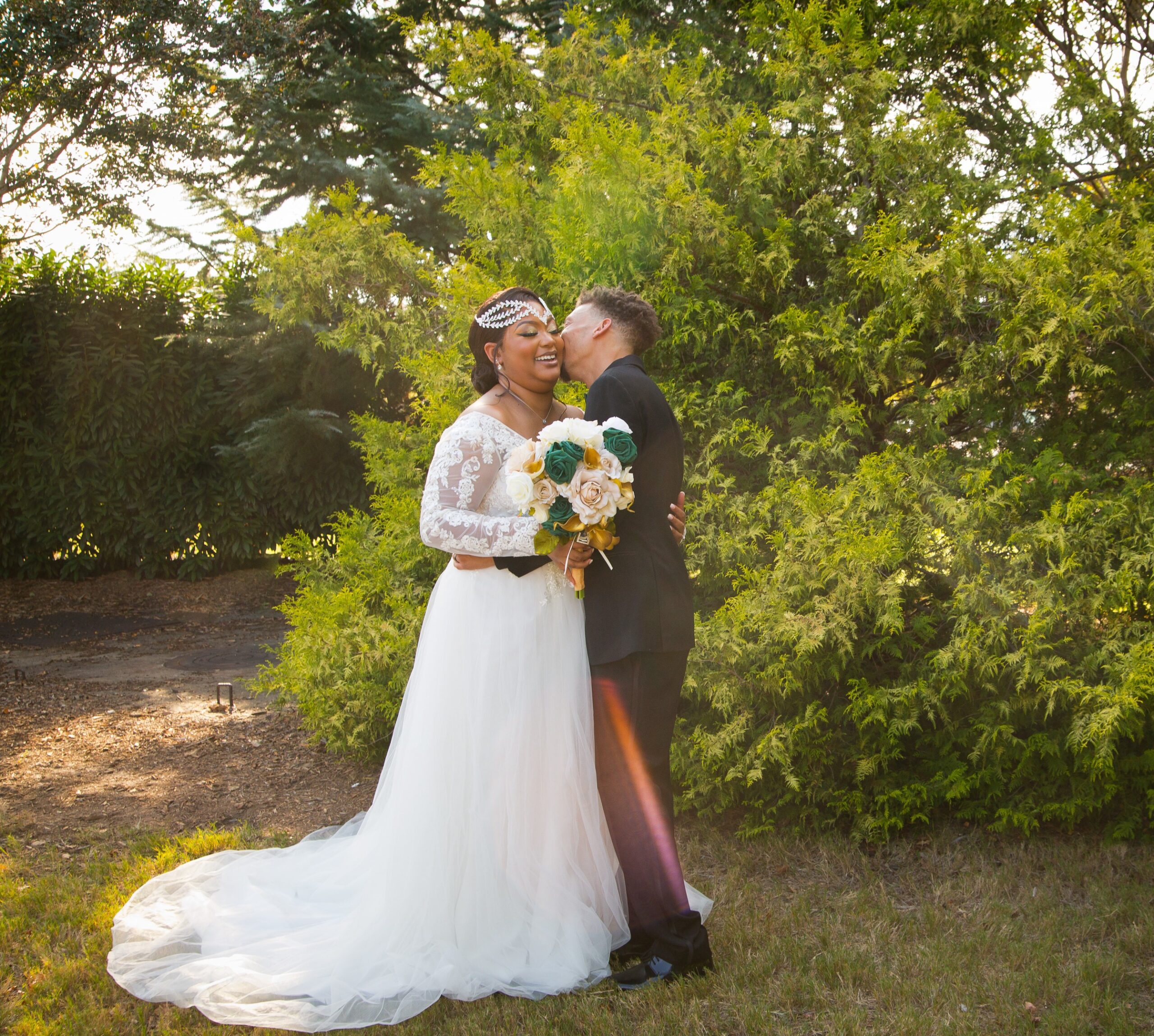It’s a momentous occasion in woman’s life, but planning the wedding of your dreams can take a toll on brides financially and emotionally. Brides can experience a lot of anxiety or stress while planning and executing their perfect day. Reiney Sanders-Wright experienced it when she got married in 2022.
“Between food, the venue, the aesthetics of the wedding, hairstyles, [and] vendors, it can be a lot,” Sanders-Wright told 21Ninety.
If you think once the wedding bells are done ringing that the stress goes completely away, that’s not always the case. In fact, a recent study found that nearly 40 percent of married couples experience sadness after saying, “I do.” Now that she has had a chance to experience it all, Sanders-Wright looks back on the things that she would improve to make planning a lot less hectic.
Pre-Wedding Stress
Sanders-Wright warns that the bride is under the most stress when planning a wedding.
“You plan for that special day to share with family and friends but most importantly entering a new chapter with the person you love,” Sanders-Wright said.
She admits one of the biggest concerns was money.
“It is much better to set money [aside] and to not go over [the budget] you set,” Sanders-Wright explained.
Psychotherapist and self-care coach Lakiah Bankston says the first thing a bride should do if she is stressed out while planning her wedding is to ask for help.
“Some level of stress is actually good to help motivate us to get things done,” Bankston explained. “Just have a routine of calming yourself down if or when it happens.”
Brides also need to be compassionate with themselves and practice self-care.
“Make sure to get enough quality sleep, do gratitude journaling, eat consistent meals, include relaxing or fun activities, [and] drink calming teas,” Bankston explained

Wedding Day Stress
Sanders-Wright says there are so many things that can go wrong once your wedding day arrives.
“I stressed over people not showing up at the time they were supposed to,” Sanders-Wright said.
Looking back on it, she says she would plan her nuptials differently. Those changes would include a further out wedding date and a destination wedding to accommodate a smaller budget and crowd.
“I would’ve invited less people because 180 people did not show up,” Sanders-Wright said.
Bankston says there are a number of things to remember on your wedding day to keep stress as low as possible. First, be present and focus on what’s most important to you.
“Don’t believe every negative thought you have,” Bankston said. “Ask yourself if this detail you’re stressing about will matter in five or 10 years of your marriage.”
Bankston say those wedding day jitters are temporary.
Post-Wedding Stress
Bankston says it is normal to experience stress after any major life event.
“When you finally do go through the whole event, all of that pent up stress gets released,” Bankston said. “Sometimes that can look like overthinking [or] worrying about everything on that big day.”
Sanders-Wright had a short list of things that she would change about her wedding day if she could.
“I do wish I would have gotten more pictures with certain family members, but I am making up for that now,” Sanders-Wright said.
She says her best advice for brides is to remember that the day belongs to you and your partner only.
“People who have negative opinions also add stress,” Sanders-Wright said. “If they aren’t in agreement or continue to talk down on your plans, don’t give them the satisfaction.”
Bankston has advice for overcoming the stress.
“Learning how to calm down our nervous system, focusing on a healthy distraction, and not believing every negative thought they have can be really helpful,” said Bankston.
